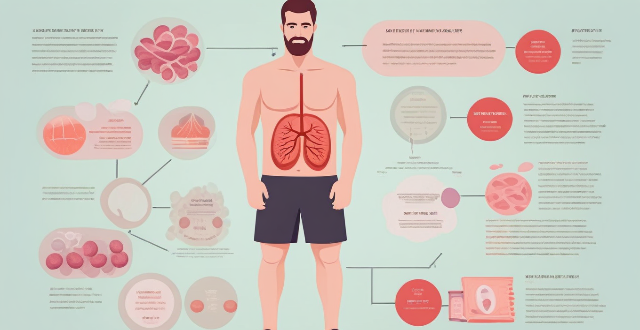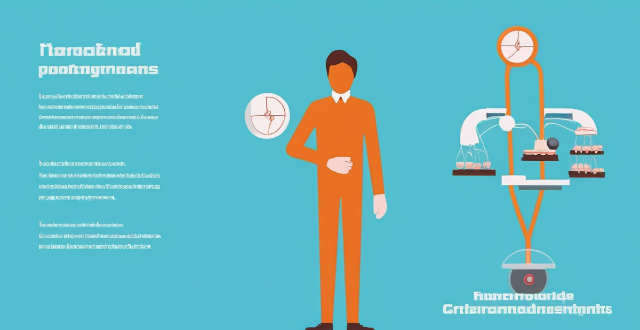Immune Infectious

Can vaccines be used to treat cancer or other non-infectious diseases ?
Vaccines are traditionally used to prevent infectious diseases by stimulating the immune system to recognize and attack specific pathogens. The possibility of using vaccines for the treatment of cancer or other non-infectious diseases is being explored, with a focus on modulating the immune response rather than stimulating it. Cancer vaccines, including preventive and therapeutic types, aim to stimulate the immune system to recognize and destroy tumor cells. For autoimmune diseases, researchers are exploring ways to use vaccines to dampen overactive immune responses or retrain the immune system. Vaccines are also being investigated for their potential in treating other chronic diseases such as Alzheimer's and heart disease. While promising, the application of vaccines in treating non-infectious diseases faces significant challenges, including identifying unique targets and balancing immune responses. Advancements in immunology and vaccine technology offer hope for new treatments that could benefit millions worldwide.

Are there any alternative methods for preventing infectious diseases besides vaccination ?
Besides vaccination, there are several alternative methods that can help prevent the spread of infectious diseases, including hand hygiene, wearing personal protective equipment (PPE), following respiratory etiquette, and maintaining safe food practices. These measures can reduce the risk of infection and contribute to controlling the spread of infectious diseases.

Can exercise boost the immune system ?
Exercise can indeed boost the immune system through various mechanisms, including enhanced circulation, reduced inflammation, weight management, stress reduction, improved sleep, increased self-esteem and mental health, microbiome diversity, temperature regulation, prevention of chronic diseases, and social interaction. Regular moderate exercise is generally considered beneficial for the immune system, but it's essential to consult with healthcare professionals to determine the appropriate amount and intensity of exercise for individual needs and circumstances.

Is it true that certain superfoods can boost your immune system ?
Incorporating superfoods like citrus fruits, garlic, ginger, spinach, yogurt, nuts and seeds, blueberries, and turmeric into your diet can help support immune health by providing key nutrients such as vitamin C, vitamin D, zinc, protein, and antioxidants. These foods offer a range of benefits including boosting white blood cell production, reducing inflammation, supporting digestive health, and protecting against oxidative stress. However, it's important to maintain a balanced diet and lifestyle for overall immune support.

Can excessive training have negative effects on the immune system ?
Excessive training, or overtraining, can have negative effects on the immune system. Regular exercise enhances immune function by stimulating antibody and white blood cell production, reducing inflammation, and improving circulation. However, excessive training can cause chronic inflammation, oxidative stress, and hormonal imbalances that suppress immune function. Signs of overtraining syndrome include chronic fatigue, mood changes, and increased susceptibility to illness. To prevent overtraining and maintain immune health, individuals should follow a balanced training program, prioritize sleep, eat a nutrient-rich diet, and manage stress levels.

How does regular exercise contribute to boosting the immune system ?
Regular exercise has numerous health benefits, including boosting the immune system. It promotes increased blood circulation, reduces inflammation, helps in weight management, reduces stress, improves sleep quality, enhances gut health, increases antioxidant capacity, supports cardiovascular health, enhances mental health, and contributes to increased longevity. Incorporating regular physical activity into your lifestyle can support a strong and resilient immune system.

How can I improve my diet to boost my immune system ?
Improving your diet is one of the best ways to boost your immune system. Here are some tips on how you can do that: ## Eat a Variety of Foods Eating a variety of foods ensures that you get all the essential nutrients your body needs. This includes fruits, vegetables, whole grains, lean proteins, and healthy fats. Aim for at least five servings of fruits and vegetables per day. ### Fruits and Vegetables - Apples - Bananas - Berries - Broccoli - Carrots - Spinach ### Whole Grains - Oats - Quinoa - Brown Rice ### Lean Proteins - Chicken breast - Fish (such as salmon or tuna) - Legumes (such as lentils or chickpeas) ### Healthy Fats - Avocados - Nuts (such as almonds or walnuts) - Seeds (such as chia or flaxseed) ## Stay Hydrated Drinking enough water is crucial for maintaining a healthy immune system. Aim for at least eight glasses of water per day, and more if you're active or it's hot outside. You can also stay hydrated by drinking herbal teas or eating water-rich foods like cucumbers, melons, and strawberries. ## Limit Processed Foods and Sugary Drinks Processed foods and sugary drinks can weaken your immune system by causing inflammation in your body. Try to limit these foods and drinks as much as possible, and opt for whole, nutrient-dense foods instead. ## Consider Taking Supplements If you're not getting enough vitamins and minerals from your diet, consider taking supplements. Some common supplements that may help boost your immune system include vitamin C, vitamin D, zinc, and probiotics. However, be sure to talk to your doctor before starting any new supplements.

Is there a specific duration or intensity of exercise needed to improve immune function ?
The relationship between exercise and immune function is complex, but research suggests that regular physical activity can enhance the immune system. However, both the duration and intensity of exercise play significant roles in achieving this beneficial effect. The American Heart Association recommends at least 150 minutes of moderate-intensity aerobic activity or 75 minutes of vigorous-intensity activity per week for adults. Engaging in prolonged periods of endurance exercise can temporarily suppress immune function due to increased stress on the body. Light activities like walking or yoga can still offer immune benefits by reducing stress and promoting overall health. Regular moderate to high-intensity exercises, such as jogging, cycling, or strength training, are generally considered optimal for enhancing immune function. Adequate rest and recovery are crucial for maintaining a healthy immune system. Combining different types of exercises (aerobic, strength training, flexibility work) can provide a well-rounded approach to enhancing immune function. Staying hydrated and consuming a balanced diet rich in nutrients supports both exercise performance and immune health. Other lifestyle habits, including sleep quality, stress management, and avoidance of harmful substances, also play a vital role in supporting immune function alongside exercise.

How do virus variants emerge ?
Virus variants emerge due to evolution, influenced byVirus variants emerge due to evolution, influenced bycombination, host immune influenced by factors like mutation, recombination, host immune response, and environmental factors. Mutations can make viruses more infectious or resistant to treatments, while recombination results in new viruses with characteristics from different parent viruses. The host's immune system drives the virus to mutate and develop new variants that can evade the immune response. Environmental factors like temperature and exposure to chemicals can also influence virus evolution. Understanding these mechanisms is crucial for preventing and controlling viral diseases.

How does consistent physical activity affect the immune system in relation to chronic disease prevention ?
The article discusses the impact of consistent physical activity on the immune system and its role in preventing chronic diseases. It explains that regular exercise can increase the number and activity of immune cells, reduce inflammation, and improve overall health. The article also provides recommendations for exercise and emphasizes the importance of incorporating physical activity into one's lifestyle to prevent chronic diseases and improve well-being.

What are the key challenges facing global health security today ?
Global health security faces several key challenges, including emerging infectious diseases, antimicrobial resistance, weak health systems, political instability and conflict, and social determinants of health. These challenges threaten the well-being of people worldwide and require collective efforts to prevent, detect, and respond to infectious diseases that threaten human health.

Can global warming cause an increase in infectious diseases ?
Global warming can lead to an increase in infectious diseases through changes in vector habitats, host populations, and human behavior. To mitigate this impact, it is essential to reduce greenhouse gas emissions and adapt to the changing climate by implementing measures such as improving sanitation systems, vector control programs, and public health education.

How does climate change contribute to the spread of infectious diseases ?
Climate change contributes to the spread of infectious diseases by increasing temperature and humidity, altering vector habitats, causing extreme weather events, and promoting urbanization and deforestation. These factors create favorable conditions for pathogens and disease vectors, disrupt sanitation systems, increase human-wildlife contact, and facilitate rapid disease spread among humans. Addressing these issues requires a comprehensive approach that includes mitigating climate change and implementing effective public health strategies.

What is the process of vaccine allocation ?
Vaccine allocation is a crucial step in the fight against infectious diseases, such as COVID-19. It involves distributing vaccines to those who need them most, ensuring equitable access and maximizing public health benefits. The process includes determining priorities, identifying supply sources, allocating doses, distributing vaccines, and administration and tracking. By following these steps, we can ensure that vaccines are distributed equitably and effectively, helping to control the spread of infectious diseases and protect public health.

Are there specific PPE recommendations for healthcare workers dealing with infectious diseases ?
The text is a set of recommendations for personal protective equipment (PPE) that healthcare workers dealing with infectious diseases should use. The recommendations include hand hygiene, respiratory protection, eye protection, body protection, footwear protection, gloves, and head protection. It emphasizes the importance of using the right PPE to minimize the risk of infection transmission and ensure the safety of healthcare workers.

What measures can be taken to prevent the spread of infectious diseases across borders ?
The text discusses measures to prevent the spread of infectious diseases across borders, including surveillance and early warning systems, travel restrictions and border controls, vaccination programs, public health infrastructure and preparedness, collaboration and information sharing, and education and public awareness. The Global Health Security Agenda (GHSA) promotes robust surveillance systems for early detection of outbreaks, while the International Health Regulations (IHR) require countries to develop core public health capacities. Travel restrictions such as entry/exit screening and quarantine policies can help prevent introduction of diseases into new regions. Vaccination programs, including routine immunization and vaccination requirements for travelers, reduce the risk of disease spread. Strong public health infrastructure and emergency response plans are crucial for containing outbreaks. Collaboration and information sharing through global health security initiatives and open access to data enable quicker identification of patterns and trends. Education and public awareness campaigns can reduce transmission rates and discourage travel to high-risk areas. By implementing these measures, countries can work together to protect public health globally.

How do biosafety policies evolve in response to emerging infectious diseases and pandemics ?
Biosafety policies are evolving in response to emerging infectious diseases and pandemics. The evolution is driven by scientific advancements, global health initiatives, and lessons from past outbreaks. Key factors driving this evolution include: - Scientific advancements such as research and development and genomic sequencing. - Global health initiatives like international collaboration and surveillance systems. - Lessons learned from past outbreaks, leading to review and revision of policies and the adoption of best practices. Examples of evolved biosafety policies include: - Laboratory biosafety with clear classification systems (BSL) and standard operating procedures (SOPs). - Public health measures such as infection prevention and control (IPC) and vaccination programs. - Travel restrictions and quarantine measures like entry screening and quarantine regulations. - International regulations and agreements, including the Biological Weapons Convention (BWC) and the Global Health Security Agenda (GHSA). The continuous evolution of biosafety policies is crucial for managing risks associated with biological agents and protecting public health.

Can social distancing be implemented in schools and universities effectively ?
Social distancing is crucial to prevent the spread of infectious diseases, but implementing it in educational institutions like schools and universities can be challenging. Challenges include limited classroom space, managing student interaction outside of the classroom, and ensuring staff training and compliance. Effective strategies for implementing social distancing in these environments include classroom redesign, virtual learning options, signage and reminders, and monitoring and enforcement. By prioritizing health and safety, educational institutions can contribute to controlling the spread of infectious diseases while continuing to provide quality education.

What measures should be taken to prevent the spread of infectious diseases in a laboratory setting ?
In a laboratory setting, it is crucial to take measures to prevent the spread of infectious diseases. This includes wearing personal protective equipment (PPE), practicing proper hand hygiene, using biosafety cabinets for handling pathogens, and properly disposing of biohazardous waste. Regular cleaning and disinfection of surfaces and equipment is also essential, as well as following specific protocols for procedures like centrifugation and pipetting. By implementing these measures, the risk of infection can be significantly reduced.

Are there any particular sports or exercises that have been studied for their impact on immunity ?
This article discusses the impact of various sports and exercises on immunity, including aerobic exercise, resistance training, high-intensity interval training (HIIT), and yoga/meditation. It highlights the positive effects of these activities on immune function when performed regularly and appropriately, such as increased blood flow, enhanced immune cell production, improved cardiovascular health, and reduced inflammation. However, it also emphasizes the potential negative effects of excessive exercise or overtraining on immunity, urging individuals to find a balance between physical activity and rest.

What types of physical activities are most effective in enhancing immunity ?
Regular physical activity is crucial for enhancing immunity, with various types of exercises offering specific benefits. Aerobic exercises like jogging, cycling, and swimming improve cardiovascular health, respiratory function, and overall fitness, while also reducing stress and inflammation. Resistance training, including weightlifting and yoga, builds muscle mass, promotes hormone balance, and supports gut health. High-Intensity Interval Training (HIIT) boosts metabolism and cardiovascular health. Incorporating a mix of these activities into your routine can significantly enhance immunity.

Does consistent exercise reduce the risk of catching colds and flu ?
Regular physical activity is known for its health benefits, including potential protection against colds and flu. Studies suggest that exercise can enhance immune system function by improving circulation and inducing a mild inflammatory response. However, the evidence is mixed, with some studies showing a clear link between regular exercise and reduced respiratory infections, while others do not. Potential mechanisms include improved immune surveillance, stress reduction, and increased circulation of immune cells. To benefit from these effects, it is recommended to engage in moderate to high levels of physical activity, such as 150 minutes of moderate aerobic activity or 75 minutes of vigorous activity per week, along with strength training exercises. Overtraining should be avoided, as it can weaken the immune system. Good hygiene practices are also essential for preventing colds and flu.

How long after starting a new exercise routine can improvements in immunity be expected ?
Regular exercise has numerous health benefits, including improved cardiovascular health, weight management, and mental well-being. One of the lesser-known benefits is its positive impact on the immune system. Improvements in immunity can be observed within a few weeks of starting a regular exercise program, depending on individual factors such as current fitness level, intensity and duration of exercise sessions, and overall lifestyle habits. By incorporating regular physical activity into your daily routine, you can enhance your immune function and enjoy the numerous other health benefits associated with exercise.

How can we ensure equitable distribution of vaccines and treatments for infectious diseases globally ?
The text discusses strategies to ensure equitable distribution of vaccines and treatments for infectious diseases globally. It suggests increasing production capacity through investing in research and development, expanding manufacturing capabilities, improving financing mechanisms by providing financial support to low-income countries and encouraging private sector participation, strengthening infrastructure and logistics through enhancing cold chain systems and developing distribution networks, promoting political will and global cooperation through advocating for international agreements and addressing intellectual property rights issues.

How do vaccines work to protect against disease ?
Vaccines protect against disease by introducing a small amount of the pathogen into the body, triggering the immune system to produce antibodies that protect against future infections with the same pathogen. There are several types of vaccines with unique mechanisms of action and effectiveness against specific pathogens. The development of vaccines is a complex process requiring extensive testing and research, but they have been shown to be highly effective at preventing serious diseases.

What are the latest developments in vaccine research and development ?
The text discusses the latest developments in vaccine research and development, including the creation of new vaccines for COVID-19, cancer, and other infectious diseases. It also highlights the challenges and opportunities facing vaccine researchers and developers, such as ensuring accessibility and affordability of vaccines and addressing concerns about vaccine safety and efficacy. The text concludes by emphasizing the importance of continued investment in vaccine research and development to improve global health outcomes.

How does biodiversity loss affect human health ?
Biodiversity loss affects human health in various ways, including increased risk of infectious diseases, decreased mental well-being, and disruption of food systems. To mitigate these effects, individuals can prioritize sustainable consumption habits while governments can implement policies that promote sustainable development and protect natural habitats.

How does vaccine distribution affect public health ?
Vaccine distribution is crucial for global health, reducing disease incidence and healthcare costs while increasing productivity. Challenges include inequitable access, logistical complexities, and public perception issues.

How do climate change and environmental factors impact virus origin tracing ?
Climate change and environmental factors play a significant role in virus origin tracing by affecting host and vector distribution, human activities, and interactions with the environment. Understanding these impacts is crucial for effective surveillance and research efforts to prevent and control infectious diseases.